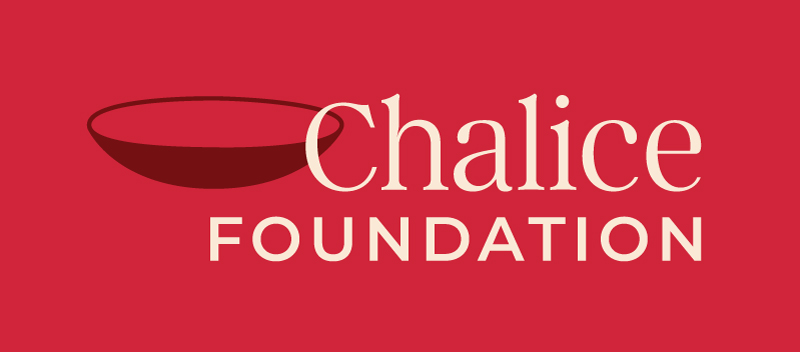This week we are lucky to be sharing a blog from the Menstrual Health and Gender Justice working group at Columbia University. This group puts particular emphasis on critically evaluating the current state of research, advocacy and programming, with interest in examining whose voices are being represented in the field, which actors shape the dominant narrative, whose voices are marginalized, what the gaps are, and how interdisciplinary collaboration might help remedy some of these gaps.
The period emoji, the year of the period, and an Oscar-winning documentary — the last decade has brought a paradigm shift for menstruation. This increasing attention can change how we perceive menstruation and undo powerful social taboos that shape our understanding of menstruation.
Periods are (still) considered embarrassing, best kept concealed and not discussed socially. But we have an opportunity to change this. It’s not just the media and popular culture, menstruation has also captured the attention of policy-makers. Many countries have adopted policies that address menstrual needs, including India, Kenya, Senegal, and the United States. With more such efforts underway, it is an opportune time to review progress. In a recent research project, we critically reflect on the opportunities and challenges countries have experienced: What do policies address? Where do they fall short? And has this actually changed how we think about menstruation?
What do policies address?
Across countries, policies focus predominantly on tangible and material outcomes related to menstrual products and sanitation facilities for the ‘hygienic management’ of menstruation. Menstrual needs are narrowly perceived as the management of bleeding. As ‘leakage’ or ‘unpleasant odour’ are stigmatised signs of menstruation, having access to products and facilities can help avoid such scenarios and curb embarrassment — so the rationale.
Policy initiatives also promote menstrual education as it can be an antidote to misinformation and stigma. However, such initiatives focus almost exclusively on menstrual hygiene and the use of menstrual products — the practical elements of managing menstruation. The overall message is that menstruators need to learn to manage their menstruation properly by using appropriate materials. This perception is reinforced by the use of the common term ‘menstrual hygiene management’, or its ubiquitous acronym MHM, which presents menstruation as something technical and sanitised, devoid of its embodied messiness and sociocultural meanings.
Where do policies fall short?
The provision of pads has become commonplace; they are promoted as a ‘solution’ to a perceived problem without recognising broader challenges that menstruation poses — challenges that are rooted in socio-cultural constructions and gendered stereotypes.
Let us be clear — menstruation itself is not ‘a problem’, it is a natural, physiological process. What poses problems for people who menstruate is what we as society make of menstruation through the stigma we ascribe to it.
With their focus on menstrual pads and hygiene management as superficial, quick, material fixes, policies shy away from encouraging (or even permitting) any signs of menstruation. Rather than interrogating and challenging societal norms that ascribe embarrassment to menstruation, menstruators are provided with menstrual products to cover up their ‘shame’. Menstrual products serve as a coping mechanism, but they do not challenge the fundamental assumption that menstruation is shameful and the underlying misogynist attitudes. As a result, stigma persists; it is covered up in layers of fluffy cellulose.
To date, policy-makers seem constrained by the very stigma they seek to tackle, resulting in hesitancy and missed opportunities. They inadvertently perpetuate the very stigma they seek to erase.
We need to recognise that it is not the lack of access to products that causes embarrassment and shame; rather, social norms that present menstruation as dirty and shameful result in embarrassment. To address this stigma, we first need a better understanding of its workings and impacts.
Menstrual stigma carries an invisible power to define what is normal and acceptable — and what is not. A hairpin is; a tampon is not. A broken bone is; endometriosis is not. Education on nutrition is; menstrual literacy is not.
Menstrual stigma has profound effects on the human rights to health, bodily integrity, education, work, and participation in social, cultural, and public life. Many menstruators hesitate to seek medical advice, and health care providers are not necessarily trained on menstrual cycle-related conditions. The average diagnostic delay for endometriosis is around seven years.
In the context of work, barriers are perpetuated through socio-cultural norms embedded in a society characterised by gender inequalities, where women earn less, are perceived as less capable, and — particularly when menstruating — are seen as ‘hysterical’ and unfit for decision-making.
This negative perception of menstruation starts early on: menstruating individuals are often unfamiliar with bodily processes, in particular before reaching menarche. They have misconceptions and negative or ambivalent feelings about menstruation, which may cause anxiety and impact their ability to learn.
Where do we go from here?
Advocates we interviewed for our study saw narrow entry points in menstrual products and hygiene interventions as necessary to make any headway. With an issue so deeply steeped in stigma, they hoped tangible and concrete calls for policy change could move menstruation from invisible and silenced to at least appearing on the agenda. However, it is high time to move past the entry points.
To be sure, public policies alone cannot undo stigma and enact social change, but they do interact with social norms. We know from other areas of public health such as HIV/AIDS that policies can either reflect and adopt stigmatising attitudes and, as a result, institutionalise, formalise, and legitimise stigma; or — if framed positively — they can actively challenge and denounce stigma and mitigate existing discrimination.
When considering new policy directions, we need to recognise that menstrual products are no silver bullet.
While changing societal attitudes and norms, education, and information may not necessarily be resource intensive, they require long-term commitment at multiple levels — the precise opposite of the silver-bullet approach.
We need to develop a more comprehensive understanding of menstrual needs and, as a result, a different set of solutions beyond product provision. A recently suggested comprehensive definition of menstrual health and its requirements highlight the importance of information, care, treatment, agentic decision-making by menstruators, and stigma-free environments as important factors beyond material requirements.
Menstrual awareness-raising and education can be effective in fighting stigma, but only if they go beyond teaching the use of menstrual products. The aim must not be to enable menstruators to pass as non-menstruators, but to develop menstrual literacy as the basis for making informed choices.
We must shift from propagating bodily control, concealment, and management to enabling bodily autonomy.
This requires access to “accurate, timely, age-appropriate information about the menstrual cycle, menstruation, and changes experienced throughout the life-course, as well as related self-care and hygiene practices.”
Menstrual education should cover pain by discussing strategies to ease discomfort while clarifying that not all menstrual pain is ‘normal’. It should bring awareness to menstrual disorders and health conditions. Such education should normalise menstruation without over-medicalising it, acknowledging disorders and pain without portraying menstruation itself as a problem or disease.
Overall, the focus of menstrual education must shift from propagating bodily control, concealment, and management rooted in gendered oppression to enabling bodily autonomy.
To tackle stigma, policies must shift from presenting menstruation as something to be managed and controlled to developing a broad understanding of diverse menstrual needs. Policies need to identify and accommodate the needs of menstruators at all levels of society. With the current momentum around menstruation, we have an opportunity and indeed a responsibility to develop more comprehensive menstrual policy-making.
This article was originally published on Apolitical. You can access it here.
The full research papers can be accessed here:
Alhelou, Nay, Purvaja S. Kavattur, Lillian Rountree, and Inga T. Winkler. “‘We like things tangible:’ A critical analysis of menstrual hygiene and health policy-making in India, Kenya, Senegal and the United States.” Global Public Health (2021): 1-14.
Olson, Mary M., Nay Alhelou, Purvaja S. Kavattur, Lillian Rountree, Inga T. Winkler. “The persistent power of stigma: A critical review of policy initiatives to break the menstrual silence and advance menstrual literacy.” PLOS Glob Public Health 2(7) (2022): e0000070. https://doi.org/10.1371/journal.pgph.0000070

Inga T Winkler
Inga Winkler is a lecturer in the Institute for the Study of Human Rights and the Director of Undergraduate Studies for the Human Rights Program. Her research agenda is held together by her interest in socio-economic rights, development, gender, social justice and substantive equality. Her policy experience over the last years has enabled her to follow discussions at various levels from global processes to local challenges which is reflected in her research approaches. Current research projects focus on the Sustainable Development Goals and human rights, the UN Special Procedures, menstrual health and wellbeing, and the human right to sanitation. Previously, she has been in residence as a visiting scholar the Center for Human Rights and Global Justice at NYU, at Stellenbosch (South Africa) and at Berkeley. She is an affiliate of the Economic and Social Rights Working Group at the Human Rights Institute at the University of Connecticut.

Nay Alhelou
Nay Alhelou is a graduate student in the Human Rights Studies program at Columbia University, focusing on collective human rights abuses and their intergenerational impacts. She is a Human Rights Research Fellow at the Institute for the Study of Human Rights (ISHR) and is working with Professor Inga Winkler on the topic of menstrual health and human rights. She is also the co-editor of RightsViews, a blog hosted by ISHR. Nay holds a Diploma in Gender Studies, a BA in Journalism, and a Minor in Psychology from the Lebanese American University. Most recently, she worked for the Natural Resource Governance Institute in New York while pursuing a MicroMasters in International Law from Université Catholique de Louvain, through edX. Prior to that, she worked in the Communications and Public Information Department at the UN Agency for Palestine Refugees (UNRWA) in Lebanon for two years. She also wrote for several news outlets in Lebanon, covering social, political and mental health issues.


